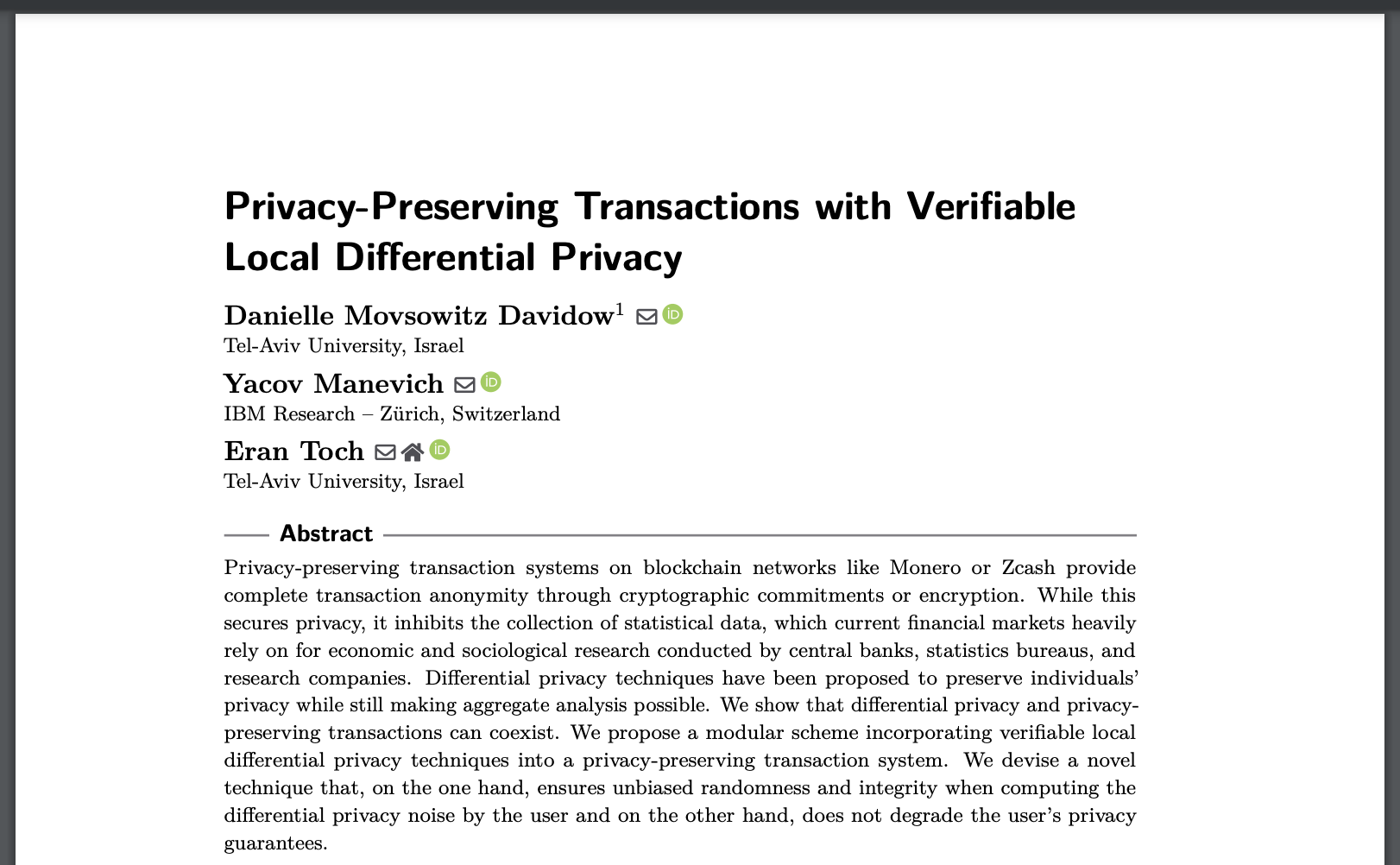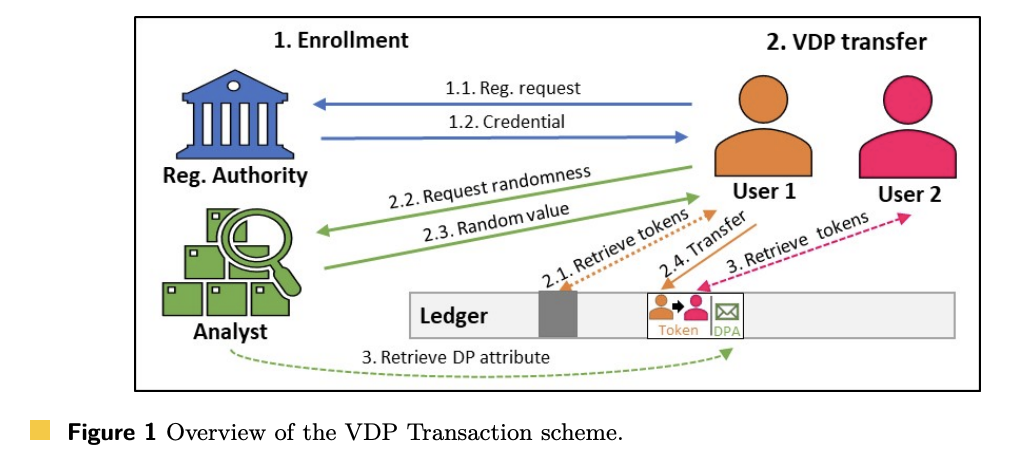|
Our paper, “Privacy-Preserving Transactions with Verifiable Local Differential Privacy” was presented at the 5th Conference on Advances in Financial Technologies (AFT 2023) in Princeton, N.J.. The paper is available here.

In an age where privacy is increasingly becoming a treasured commodity, blockchain technologies like Monero and Zcash have taken the lead in providing secure and private transactions. These technologies accomplish this feat through cryptographic commitments and encryption methods that anonymize transaction details. However, this also creates a stumbling block for researchers, statisticians, and central banks, who rely heavily on this data for comprehensive economic and sociological research. So the question emerges: is it possible to both protect individual privacy and allow for meaningful data analysis? Our recent study answers this question with a resounding yes, showing that differential privacy techniques can bridge the gap.
The Challenge: Privacy vs. Data Availability
Traditional blockchain technologies that prioritize user privacy come at the cost of disabling the collection of statistical data. For financial markets, this data is not just a “nice-to-have” but essential for accurate reporting and forecasting. Research bodies like central banks, statistical bureaus, and independent research organizations frequently use this data to derive economic models, study market trends, and conduct sociological research.
The Solution: Differential Privacy
Differential privacy is a concept that has gained traction in recent years. It aims to provide means of collecting and analyzing data in a way that the data’s utility is maximized while ensuring that individual data points (or, in this case, transactions) cannot be singled out. Our study proposes integrating differential privacy techniques directly into the existing privacy-preserving transaction systems.
A Modular Scheme for Robust Privacy
We introduce a modular scheme that incorporates verifiable local differential privacy techniques into existing privacy-preserving transaction systems like Monero or Zcash. By doing so, we make it possible to run aggregate analysis on the transaction data without compromising the privacy of any individual transaction.

Unbiased Randomness and Integrity
One of the key challenges in implementing differential privacy is ensuring that the ‘noise’ added to the data for privacy preservation is both random and unbiased. Our novel technique addresses this challenge by ensuring unbiased randomness and integrity when computing the differential privacy noise by the user. Moreover, our approach does not degrade the existing privacy guarantees offered by the transaction system.
Conclusion
Our work marks a significant step forward in reconciling the need for privacy with the equally crucial need for data analysis. The modular scheme we propose is flexible and can be integrated into existing blockchain transaction systems, providing a robust solution that satisfies both privacy advocates and data analysts. Future work will further refine these techniques and assess their effectiveness in real-world applications.
By embracing differential privacy, we can open up new avenues for research while keeping the sanctity of user privacy intact. This is not just a technical achievement but a win for individual freedoms and societal progress.
Would you like to dive into the details? Stay tuned for our upcoming research paper, where we elaborate on our findings and methodologies. Until then, let’s continue the conversation about how we can make privacy and data analysis coexist in harmony.
|

